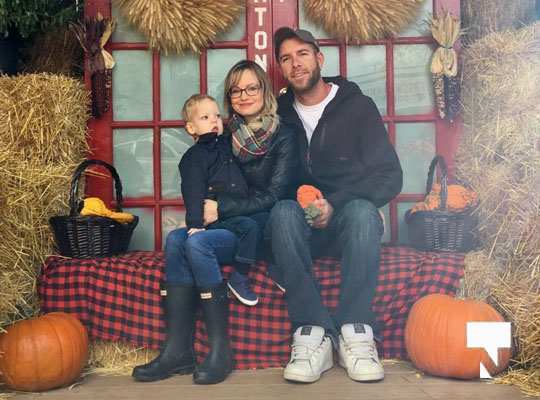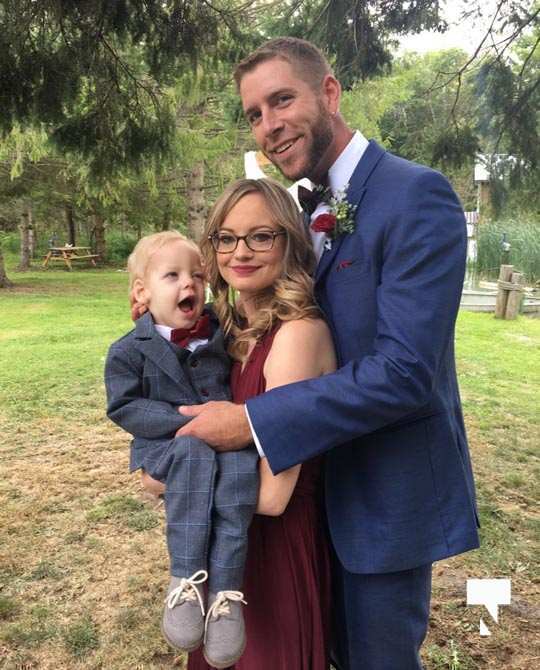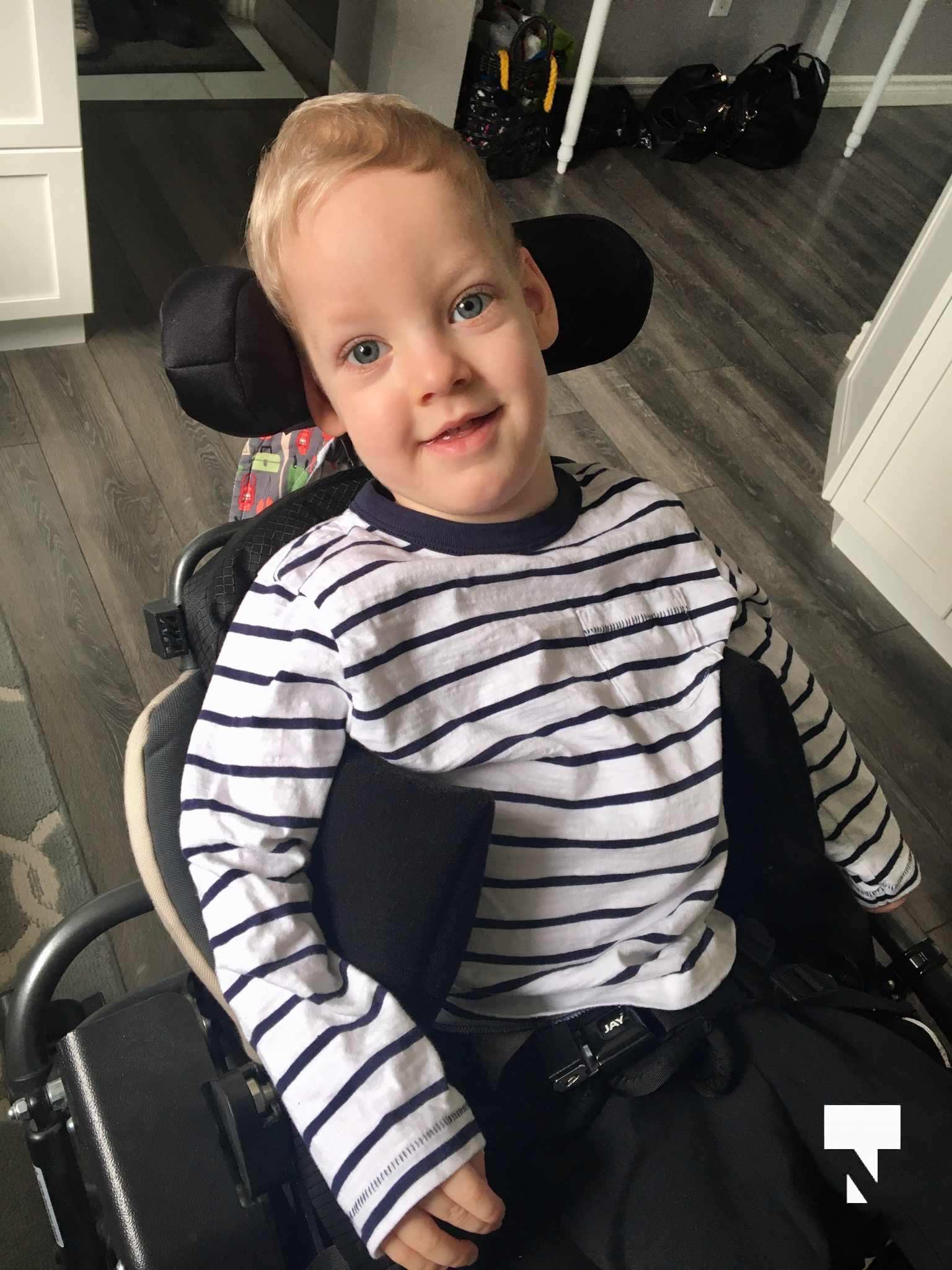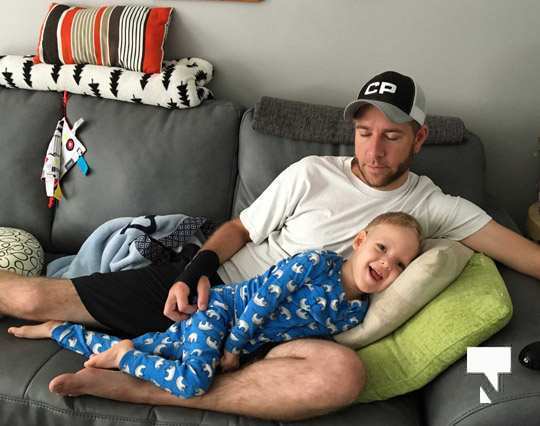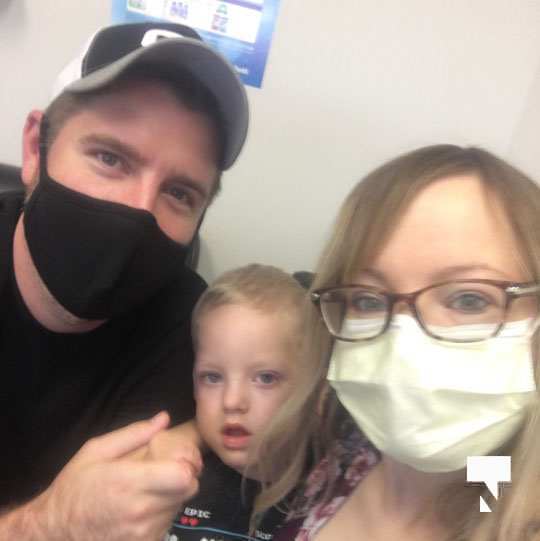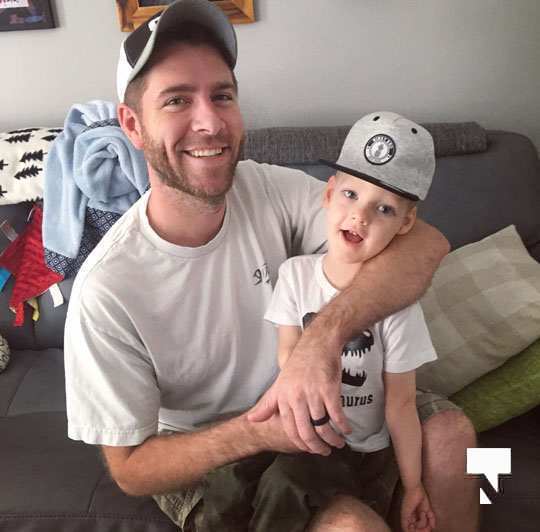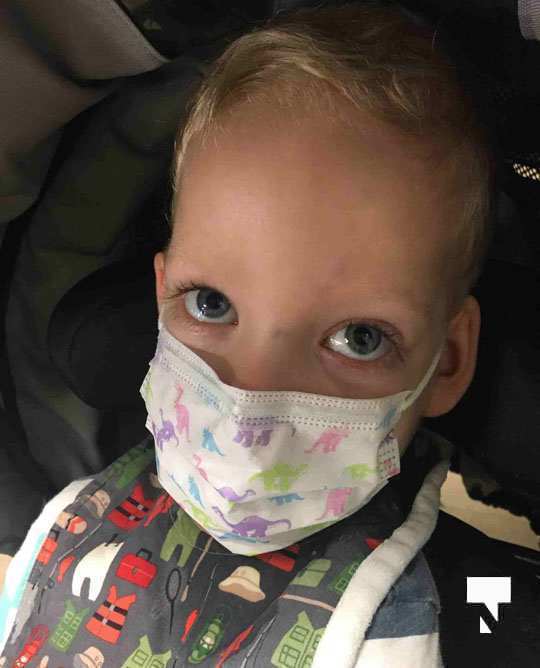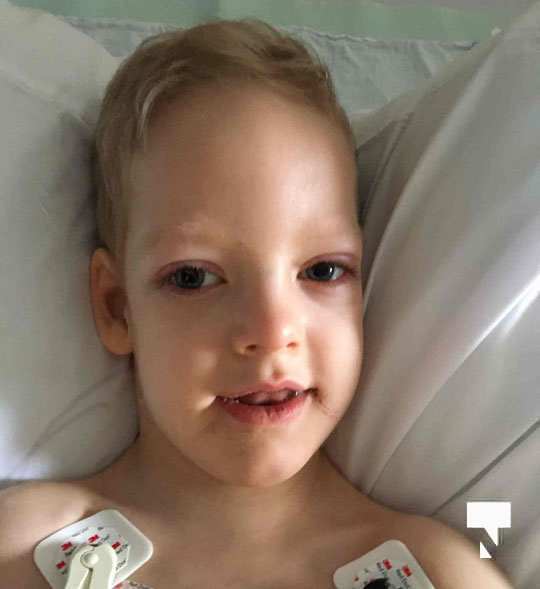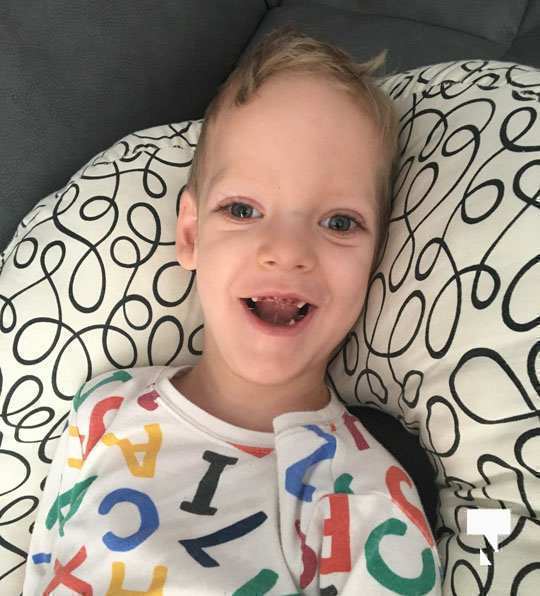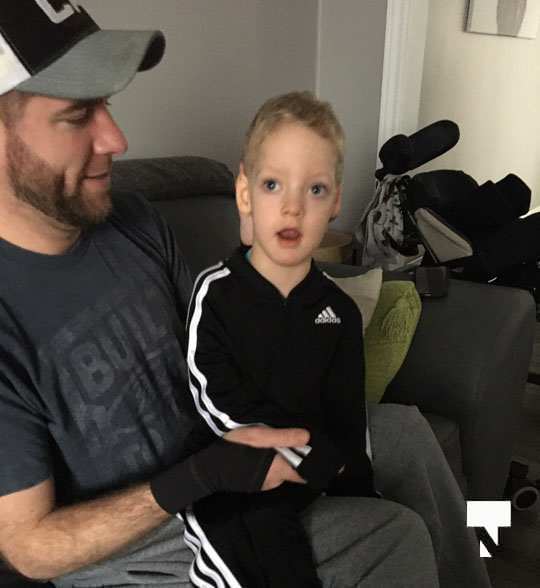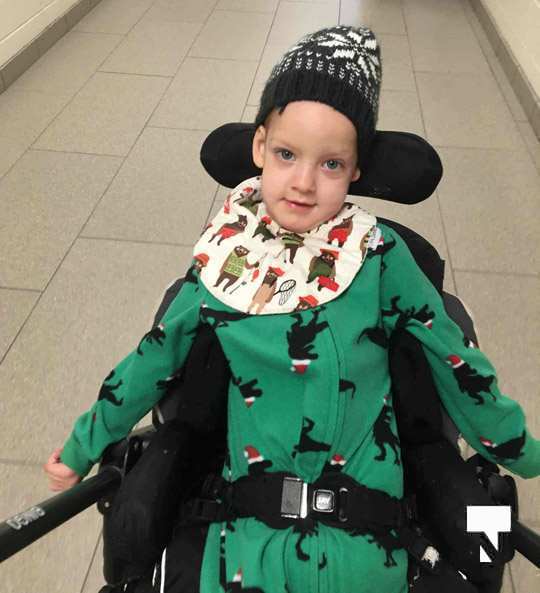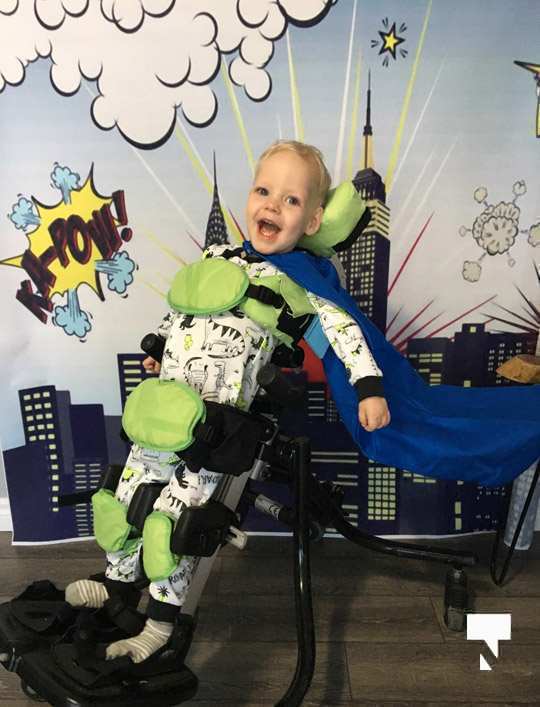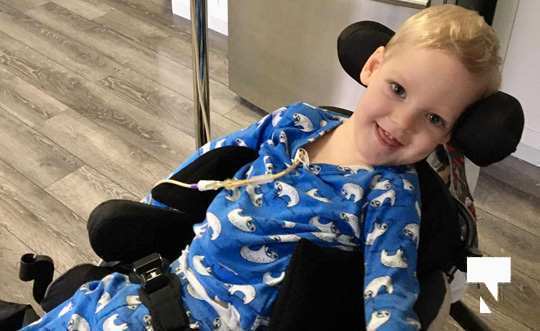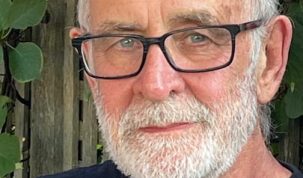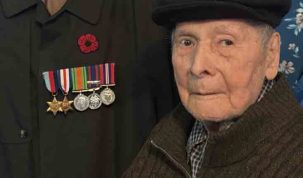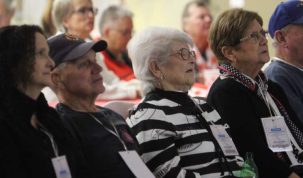By Cecilia Nasmith/Today’s Northumberland
There is a perception that parents of a special-needs child can find the support, the funds, the equipment, the help they desperately require somewhere out there – from a charity, perhaps, or a government program, or maybe their own insurance.
Brighton residents Jared and Alicia Gambos have known better, ever since their son Mason was diagnosed with Allan-Herndon-Dudley Syndrome, an extremely rare disorder also known as MCT8 deficiency. The struggles they are dealing with are both personal and financial – but Jared’s aunt Kathy Jackson is hoping members of the community can help ease their worries about the latter with the GoFundMe page she has started for the family.
Children with AHDS are affected by a loss of muscle tone, most notably seen in the inability to support their heads. There are developmental delays and subsequent health complications. At the age of four and a half, Mason experiences debilitating muscle spasms and epileptic seizures. He was recently fitted with a feeding tube because of his difficulty in swallowing.
Jared and Alicia both grew up in Brighton. They moved to Kingston for college and stayed on for a few years. Alicia left a job she’d had for six years at Amadeus Restaurant when they moved back to Brighton in August 2016, the week Mason was born.
Alicia is always researching to learn more about this relatively unknown and very complex condition that so many doctors have never seen before, and she also takes Mason to frequent appointments with a variety of specialists.
Through endocrinology assessments at the Hospital for Sick Children in Toronto, Mason is monitored as part of a drug trial for his thyroid.
Most of his specialists they see every few months at Hotel Dieu hospital in Kingston, and he goes to the CHEO clinic for dental work. As well, he sees his team of occupational, physio and speech therapists at Five Counties Children’s Centre in Cobourg.
“Basically, every month he has a few appointments to attend, between the mix of them,” his mother summed up.
But one thing will not change, and that is Mason’s need for 24-hour-a-day care, much of it due to his inability to brace his neck to support his head. As anyone who has held a newborn baby knows, bracing the neck is so important to prevent catastrophic injury. And when you watch Alicia or Jared hold their their child, you will notice they make sure to rest his little head on a shoulder or circle an arm must protectively around his neck.
Being unable to walk means he must be carried – and Alicia herself only weighs 86 lb., Jackson noted. She was taken aback recently, watching Alicia pick Mason up and rest his head on her shoulder, to see that Mason’s feet now dangle almost to his mother’s knees.
The unending physical support they must provide is broken up occasionally with episodes of a limb planking or a seizure – in which they must keep him from twisting his body in such a way that it will injure his neck, or sometimes turn him over to keep him from choking in case he vomits.
The round-the-clock care he needs is almost all provided by his parents, Jackson said, because only two hours a week of respite care is available. That’s the only time a trained professional can be there in case of one of the emergencies that sometimes arise out of nowhere with Mason, Jackson said.
Even with her own work history of caring for older adults, she doesn’t feel qualified to help Alicia with this kind of thing.
“She can’t even get in the shower when Jared’s at work,” Jackson said.
Every piece of equipment they can obtain helps so much, but much of it must be custom-made because of the extra support Mason needs (such as special bracing of the head). In some cases, it must be custom-made. Then, as months go by and Mason grows, the process (and expense) must begin again.
Jackson is seeing this as she helps transport Mason to medical appointments and treatments in her SUV.
“Him, his car seat, his mother and his equipment can’t fit into our car anymore,” she said.
They have begun taking their motorhome to these appointments. It’s roomier, and more comfortable occasionally when Mason must stay over – like a recent visit when his reaction to a medication landed him in the ICU.
But there’s no getting around the fact that Mason will need a specialized van for his wheelchair.
Another problem that looms is the two-storey home where the family live. It’s getting more and more difficult to get Mason upstairs to his own bedroom. More and more the little guy is living on the ground floor.
The first thing one might think of is a stair lift, but Mason can’t ride one – he can’t be left alone safely on a moving conveyance if he can’t hold his head up. And the day will come when Alicia can no longer bind him to her with a sling and carry him up.
They are looking into adaptations needed for him downstairs (like a shower that can accommodate his wheelchair), but thinking of the expenses in store has forced the family to find ways to afford what almost no family can afford unassisted.
Jared’s insurance from work is very helpful but also limited.
“It covers 75% of most things,” Jackson said.
“But because equipment is so expensive – like $10,000 for something – you still pay 25%. And $2,500 is more than most people make in a month.”
Another problem with the insurance is that there’s a $50,000 cap that will apply to cover the full 13 years to come until Mason is 18.
“There are some programs, which is great,” Alicia said.
“But nothing covers 100% of the cost of items, so there’s always the next item to be saving for as he grows or the next hospital stay, because this is life-long for him. So it’s hard to get ahead on the bigger items like moving or renovating for accessibility or a wheelchair van.
“That’s what Kathy was hoping to help provide assistance with from the GoFundMe.”
You can read more about Mason’s story at https://gofund.me/6ef95416 and incidentally see some beautiful pictures of Mason.
The other aspect of the family’s struggle is their commitment never to stop fighting for him. He may never speak, but they have begun looking into a process that might help him communicate with his eyes – though that was slowed down by the COVID pandemic.
And they work on providing Mason with the wonderful things any four-and-a-half-year-old loves, like kicking his legs in a pool while his daddy supports him (with an inner tube around his neck to brace his head).
Every time the little boy lets out with a laugh, Alicia and Jared grab a phone (if it’s handy) to record the joyful moment and share it around.
“It makes their day,” Jackson said.
“He loves getting tickled. It’s his favourite thing, and going fast in his stroller makes him laugh,” his mother said.
“He loves bath time and swimming – his body is more free in the water. He has become a proficient video caller during lockdown – he lights up when he sees faces on the screen.”
Friends and family members have helped with the on-going costs the best they can, but Jackson hopes more can be done with a GoFundMe page.
And Alicia expressed her gratitude to everyone who passes Mason’s story along.
“We are very grateful for how much his story has gotten shared and supported. We hope it also brings awareness to the syndrome itself. Being so rare, the more people that have heard of it, the more chance for a faster diagnosis.”


